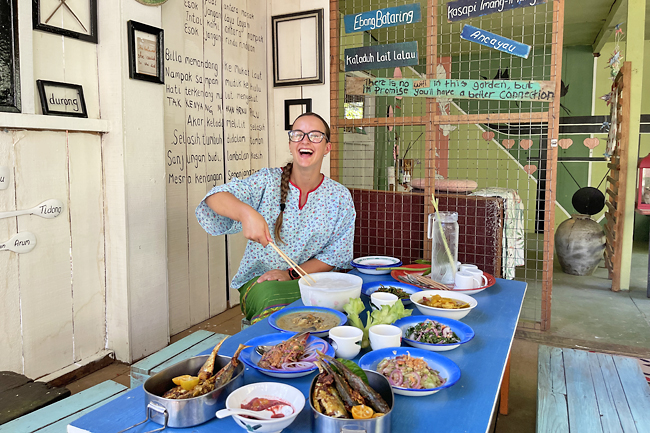In today’s globalised world, the allure of exploring new destinations and experiencing diverse cultures continues to captivate many. While traditional travel often emphasises comfort and leisure, a growing trend is emerging where adventurers seek deeper connections through volunteer travel.
The Bulletin recently caught up with Ruth, a 26-year-old dietitian from Devon, United Kingdom, whose latest adventure led her to Brunei, where she volunteered at a rural farmstay.
This was part of a broader journey through Southeast Asia, which included stops in Thailand, Laos, Cambodia, and her latest volunteer stint in Labuan, where she taught English.
With the rise of such adventurers, numerous platforms now cater to this genre of travel, addressing a diverse range of needs while focusing on more ethical and sustainable activities.
From teaching English in remote areas to working on organic rice fields or helping build a permaculture commune, this form of travel places a strong emphasis on cultural exchange and mutual enrichment.


“I usually travel independently. If I arrive in a place or want to visit somewhere, I go onto a website to check for any hosts or people with projects in that country.
“I read about it and see if that person has availability. I tend to do this on and off – sometimes I travel independently and then do a work exchange experience, and then travel again,” she explained.
For Ruth, this type of experience may not be the most comfortable, but it offers a deeper connection to the places she visits, allowing her to experience what may seem small or mundane to the locals but is profoundly authentic.
“You get to learn more. I enjoy seeing different cultures, meeting new people, and trying different foods. Travelling for leisure doesn’t always allow you to see much of a place’s culture,” she added.
“I think if you want to truly see a country, this is the best way.” During her recent trip to Labuan, Ruth shared how she had the opportunity to fully immerse herself in local life, spending time with the people and engaging with local children.
“In the evenings, the children might show you their family homes or the areas they play in, introduce you to local foods, or take you to the beach,” she recalled.
These authentic experiences added a layer of richness to her journey that no tourist guide could replicate.
While part of Ruth’s ability to embark on such adventures is aided by the strength of the British pound, she emphasised that careful financial planning is key to maintaining this nomadic lifestyle. It’s not all about currency, but about how one manages their resources to make these experiences sustainable.
Ruth has always had a soft spot for less touristy destinations, and it was this love of the unexplored that led her to Borneo. On New Year’s Day, she found herself stepping off the ferry at Serasa, Brunei Darussalam, immediately greeted by the warmth of Bruneian hospitality.
“My immediate impression was that people are very friendly and helpful. Someone from the ferry immediately offered to take me to the bus. I didn’t even ask – they just offered to help, showing me which bus to take and what to do when I got to the city,” she recalled.
Before heading off to her rural farmstay, Ruth took the opportunity to explore one of the country’s central business districts, including a visit to the vibrant night market.
It was a wonderful introduction to both the urban and rural sides of Brunei, and the contrast in experiences was striking.
“The city is quite built-up with modern infrastructure, clean roads, and a well-developed feel. However, coming to a more rural place showed me a different side of the country,” she went on to say.
In the rural areas of the Tutong District, the 26-year-old had the opportunity to participate in the preparation of ambuyat, a national dish, as well as assist in making the traditional side dishes, with ingredients either foraged or purchased from the local community.
“You get to have different experiences through the people you meet. For example, today I wouldn’t have been able to eat this kind of food at a restaurant, which is why I feel it’s different.”
Though still young, Ruth’s journey unfolds like a well-worn map, revealing that travel is not just about discovering new places but also about leaving a meaningful impact on the communities encountered.
Beyond the destinations and faces, the experience leaves a lasting mark on the traveller. It’s a chance to immerse in diverse cultures, gain fresh perspectives and grow in ways that linger long after the journey ends.
For those with an adventurous spirit like Ruth, it’s an opportunity not only to explore the world but to carry its lessons forward. – Wardi Wasil


